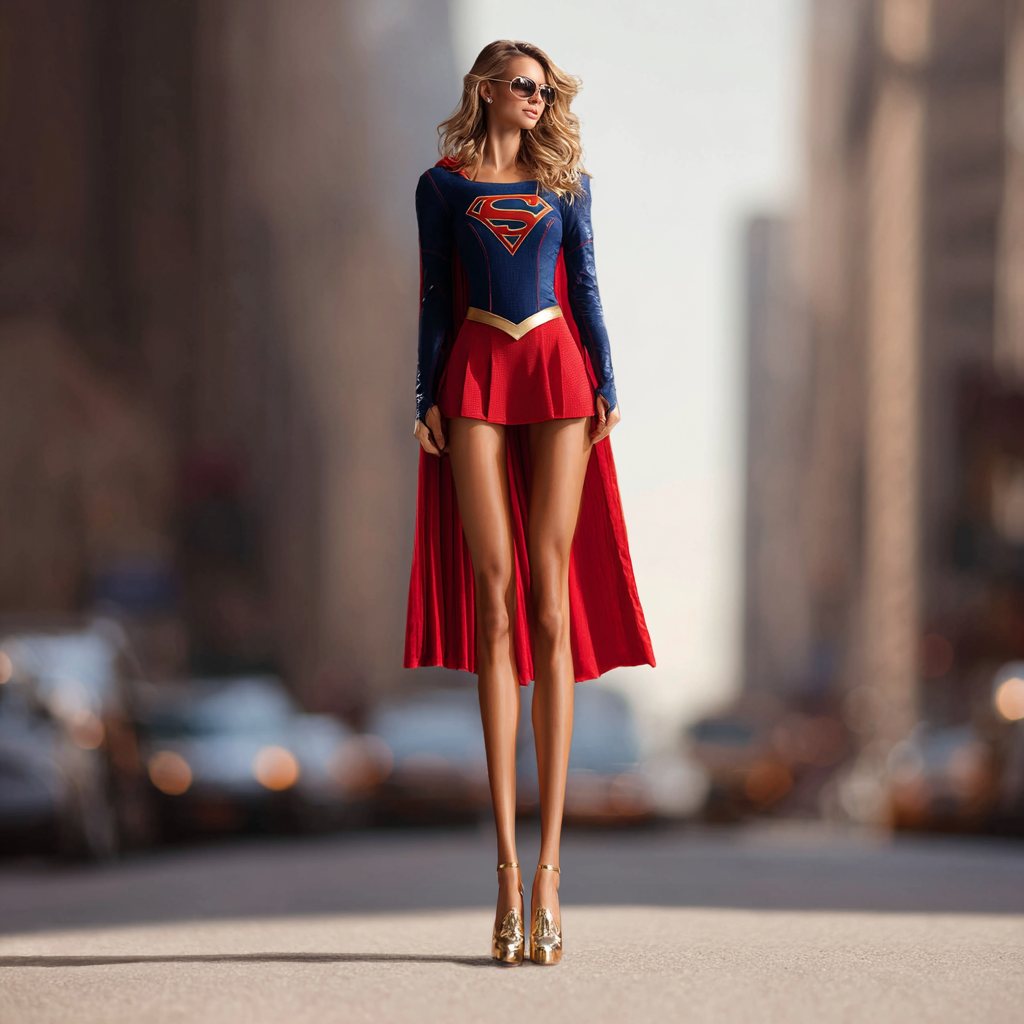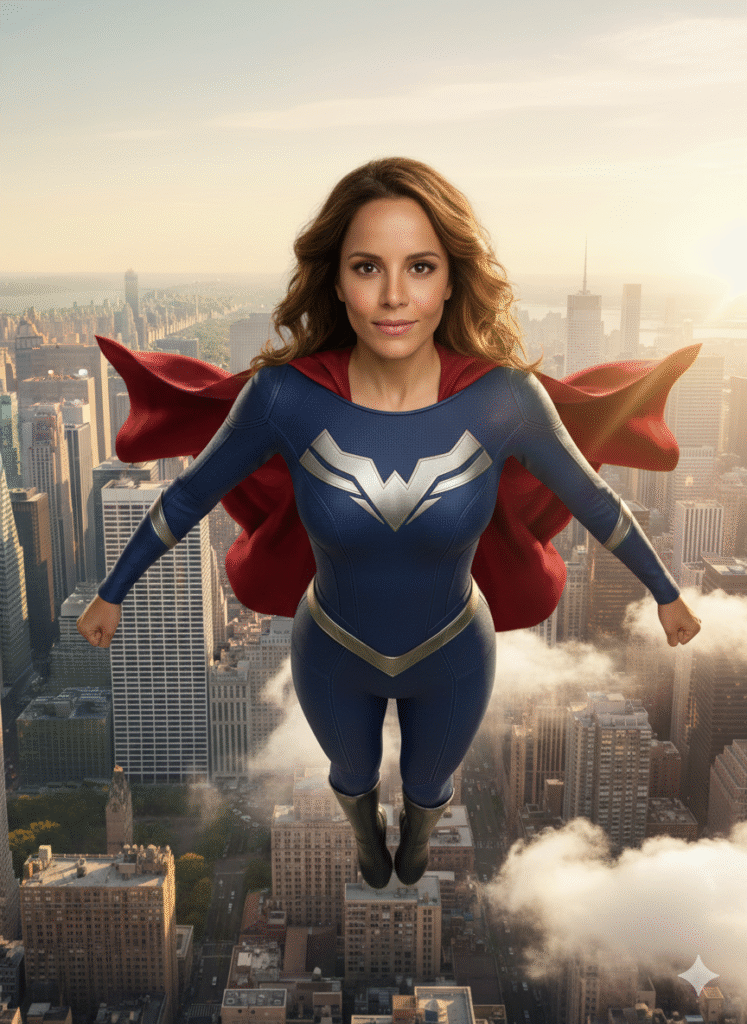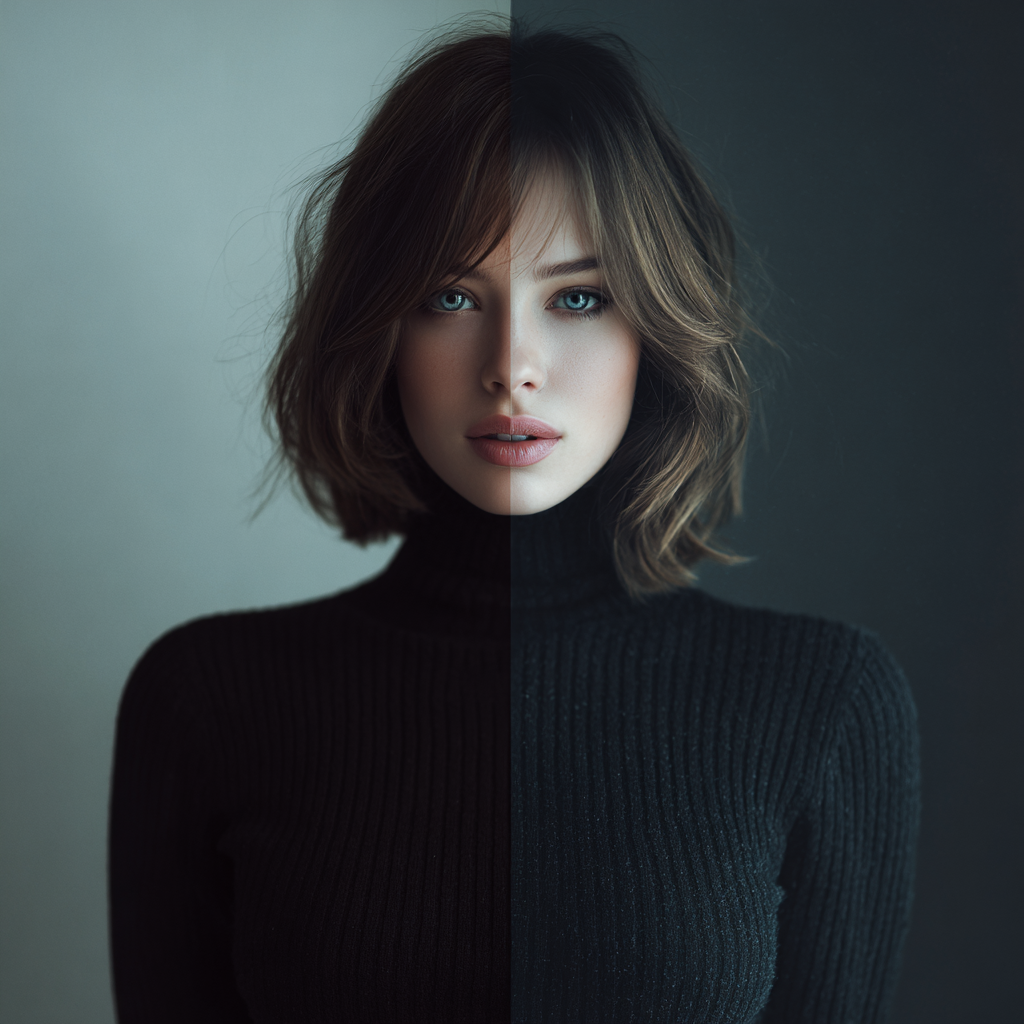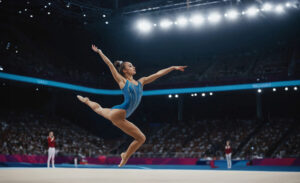GenAI has gotten more sophisticated and powerful in many respects – writing, research, and of course, images. You can essentially upload any photo of yourself and then you will have the perfect headshot, Instagram-ready airbrushing, or just a fun way to express yourself. But there can be a darker side to all of this – and that is that it is an illusion. When you are an AI image, you’re not you.
The Polished Illusion
The first time I ran a picture through Nano Banana, I’ll admit—I was intrigued. Out came a version of me with flawless skin, impossibly long legs, a sharpened jawline. In some frames, it even carved an exaggerated curve into my body that looked nothing like the way I actually look. Instead of powerful, I looked strangely gaunt.
And that’s when the most unsettling question crept in: Is this what I really look like? Do I not see myself clearly?
Obviously, with social media filters and apps like Facetune, we’ve been living with “not-quite-us” versions of ourselves for years. But seeing it rendered all at once through AI hit differently. It was more than polish—it was a wholesale reimagining. And it wasn’t unique to Nano Banana. I’ve tried other image generators and found the same unsettling patterns.
What’s worse is that these distortions aren’t just random quirks—they’re tied to systemic bias. A Guardian investigation found that AI moderation tools from major tech companies routinely label photos of women as more “sexually suggestive” than comparable photos of men. As one computer scientist put it, “Objectification of women seems deeply embedded in the system.”
So when I see myself reshaped into a caricature by AI, it’s not just about me. It’s part of a larger problem: a machine-mediated gaze that sexualizes, distorts, and suppresses women’s bodies while pretending to be neutral.
Caricatures, Not Reflections

That’s the trap these tools set. They don’t just “improve” you. They destabilize you. They plant doubt about whether your own mirror is trustworthy.
But here’s the truth: Nano Banana doesn’t reflect you—it caricatures you. Just like a cartoonist exaggerates features for comic effect, the algorithm stretches, smooths, and reshapes until you’re left with something more symbolic than real. Only this caricature isn’t playful. It whispers that the distorted version is somehow better.
Machines aren’t human. No matter how many stochastic proclamations we hear about AGI, algorithms will never reproduce the lived intuition, warmth, or presence of a real person. An AI rendering of you isn’t you.
The Superhero Trap – And the Reminder of Mortality
One of my Nano Banana outputs looked like something off a movie poster: a superheroine pose, long hair flowing, gravity-defying proportions. On the surface, it was striking. But underneath, it was just another stereotype.
Think Wonder Woman saving the world in stilettos and a strapless bodice. She’s powerful, yes—but through a lens crafted for someone else’s gaze. When my photo got twisted into that mold, it wasn’t empowerment. It was reduction. It was a reminder that the algorithm wasn’t building me up—it was bending me into a prefab fantasy.
This was me as Wonderwoman. Clearly a powerful image, but this is not what I look like in face or body proportions. I guess you are remotely similar to you? Or is it a better version of you?
The better version of you is the one that breathes air and walks on this earth. Not the airbrushed caricature AI creates. It’s easy to say, “This is not real,” but tell it to people who have struggled with body image or grappling with mid-life.
I don’t talk about myself a lot on this blog, but I have to get this off my chest to anyone who might still have the patience to read until now.
One of the hardest things about life right now for me is getting older. I am starting to see my face change shape, and while I can still see the 25 year old me, I know no one would mistake me for 25. Maybe 35, on a good day. But that is what makes me human. That is what makes me have all of the fantastic memories that I do – of my childhood in three countries, my parents when they were young, going to college, starting my life in DC, falling in love, and experiencing all of the human feelings along the way. And that is something that AI can never reinvent.

Entertainment vs. Identity
This doesn’t mean tools like Nano Banana are evil. They can be fun. They can add polish to a newsletter banner, create an eye-catching post, or even make you laugh at the exaggeration. Used that way, they’re entertainment.
But the moment you start treating them as standards—measuring yourself against them—you lose the plot. Because those images are not mirrors. They are caricatures. They are marketing assets. They are pixels shaped by code.
At the end of the day, you are not you in those images.
Remembering Who You Are
Here’s what I remind myself, and what I want you to remember too: the quirks, the edges, the unedited texture of your real presence—that’s where your power is. Machines can imitate polish. They cannot replicate humanity.
So let Nano Banana entertain you. Let it dress you up like a comic-book hero if you want. But don’t forget who you are when you log off. The real you is not reducible to pixels, filters, or code.
The real you is already enough.
If you are struggling with body image or eating disorders, you can call the National Eating Disorders Association Helpline at 1-800-931-2237 for support.






